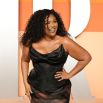In an exclusive interview with People, Tatiana Maslany opens up about the battle many women around the world face every day: sexism. The Orphan Black actress tackles the struggles of sexism in Hollywood and explains how some women don't even realize it's taking place.
It's no surprise that Maslany is just as fierce in reality as she is on the small screen. The 29-year-old Canadian actress was recently nominated for an Emmy Award for outstanding lead actress in the hit BBC America series, Orphan Black, but even her remarkable versatility as an actress doesn't eliminate her from being subjected to discrimination in the business.
"I don't think that any woman in this industry hasn't [experienced sexism]," Maslany told People. "I think we all have in various ways, and sometimes you can't even tell that it's happening because it's so ingrained in the way things are structured. Seventy or 80 percent of the people on set are male - directors, writers, producers, people in positions of power, but that's shifting too."
Maslany admitted she's experienced sexism so many times working in Hollywood, she's loss count. In her eyes, "it's pathetic." From being called sweetheart, being asked to shave her mustache (which she refuses to do), to her selected wardrobe choices that encourages the audience to focus on her sex appeal instead of the show's emotional context, she's experienced it all.
Women have begun to speak up more and more about the tactics used in Hollywood. Patricia Arquette used her acceptance speech at the 2015 Oscars to bring awareness to the unfair wage gap; Viola Davis spoke about typecasting during The Hollywood Reporter roundtable; and Keira Knightley argued the lack of female directors and writers in the industry. Women everywhere are refusing to stay silent anymore.
"I can't imagine that it's going to stay stuck like this. I hope not! People are too upset, people are too pissed off and too many strong voices are now being heard. There is a big shift happening, and I think we are at the messy puberty stages of it right now, but I hope that at some point it becomes the default that every racial group has their own stories that are being told that aren't stereotypical."
© 2025 MusicTimes.com All rights reserved. Do not reproduce without permission.




